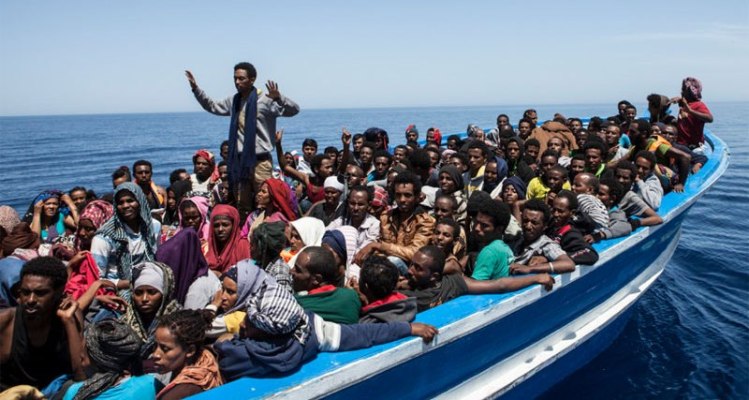Sudan and Germany in joint cooperation to combat illegal migration

October 16, 2016 (KHARTOUM) – Sudan’s police on Sunday said it has reached a joint understanding with the German police on ways to combat illegal migration and human trafficking.
In a press statement extended to Sudan Tribune, the Director General of Sudan’s Police Lieu. Gen. Hashim Osman al-Hussein, said a delegation from the Sudanese Ministry of Interior has concluded a visit to Berlin on Saturday where it held talks with the German police on transfer of crime-fighting technology and illegal migration.
He added the delegation also discussed ways to promote cooperation between Sudan’s police and German federal police in the various fields, pointing that cooperative ties between the two sides were old but have been severed during the eighties due to political reason.
Al-Hussein pointed to the professional nature of the talks, saying “crime has nothing to do with politics and we need to coordinate at the regional and international levels because we are all affiliated with the Interpol”.
He added the two sides discussed ways to provide technical, logistical and training support to Sudan’s police to fight against illegal migration and human trafficking to Europe, saying the director of Germany’s federal police has accepted their invitation to visit Khartoum for further talks on the issue.
Last August, senior Sudanese security officials said that Khartoum is carrying the burden of fighting illegal migration on behalf of Europe and pointed to significant difficulties that obstruct efforts to combat human trafficking.
It is worth to mentions that Sudan has forged a strategic partnership with several European countries and the European Union (EU) to combat illegal migration and human trafficking.
Sudan has been under EU sanctions since the 1989 coup d’état and didn’t receive any development aid from Europe.
However, the European body reconsidered its position following the weaves of illegal migrants from Syria, Iraq, and Horn of Africa countries. Sudan is identified as a source of migrants to Europe and a transit country for migrants from Eritrea, Ethiopia and Somalia.
Last April the EU officially allocated Sudan €100 million to improve the living conditions for refugees, help Sudanese returnees to reintegrate back into society, and to improve security at the border.
In addition to this support, Sudan benefits from additional funding under the EU Emergency Trust Fund for Africa, in particular from a €40 million programme to better manage migration in the region.
Also, the German government has earmarked €12 million for projects aimed at stemming illegal immigration of Africans across Sudan to Europe.
In January 2014, the Sudanese parliament approved an anti-human trafficking law which punishes those involved with human trafficking with up to 20 years imprisonment.
Also, in 2014, Khartoum hosted a conference on human trafficking in the Horn of Africa, organised by the African Union (AU), the UN High Commissioner for Refugees (UNHCR), the International Organization for Migration (IOM) and the Sudanese government.
Fifteen countries and EU representatives attended the meeting, during which a joint strategy and action plan to combat human trafficking was adopted.
Last June, a joint operation among Sudan, Italy and the United Kingdom has led to the arrest of an Eritrean man suspected of controlling one of the world’s four largest criminal migrant trafficking organizations.
PRODUCTION OF IDENTITY DOCUMENTS
Meanwhile, Al-Hussein said Sudan’s police have agreed with a group of German companies on ways to localize production of the identity and migration documents in Sudan, pointing to cooperation between the two sides in the fields of traffic police, criminal work and administration.
He said the German side promised to provide Sudan’s police with advanced crime-detection equipments and training opportunities.
For his part, the head of Sudan’s diplomatic mission in Germany Badr al-Din Abdalla said the delegation discussed the transfer of technology needed to issue official document, pointing that cooperation between Sudan and German companies in this field has begun since 10 years ago.
(ST)
